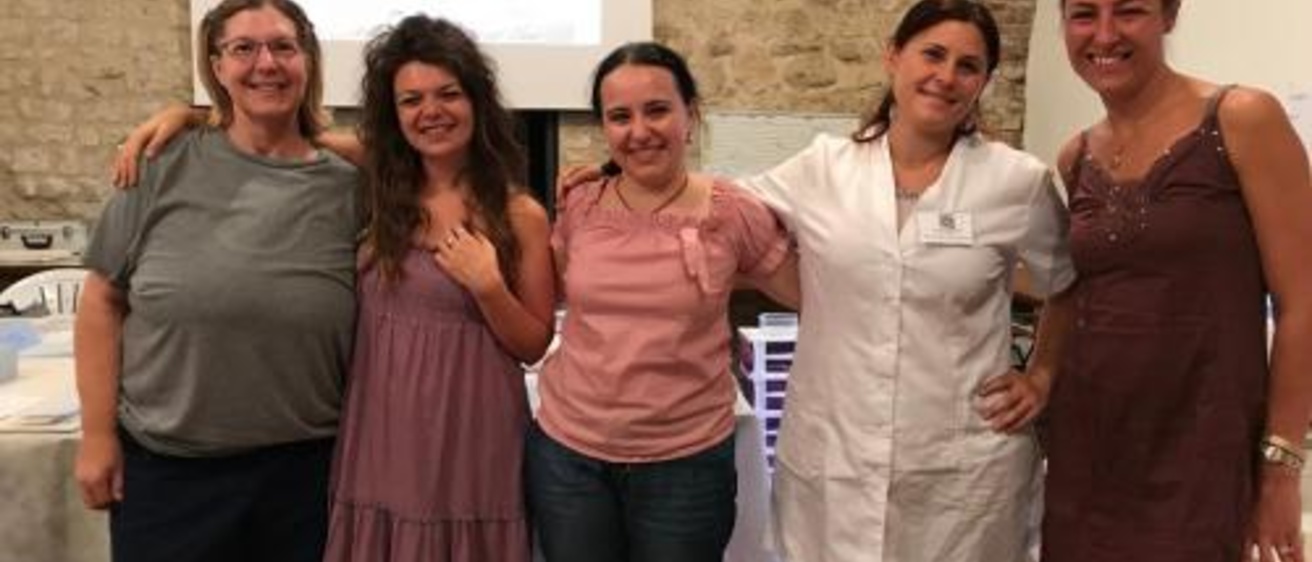“I started by touring Italy for a week and a half,” said Kim Larmee, current SLIS student. She visited Rome, Florence, Venice, and Pompeii. It was the summer of 2018, and Larmee wanted to get the most out of her trip to Italy before she arrived in San Gemini and her courses started.
Larmee came to San Gemini in order to study book and paper restoration at the San Gemini Preservation Studies, which is a summer field school that organizes lectures, research, fieldwork, workshops, and fieldtrips in the disciplines of historic preservation, restoration, and conservation.
Unlike Hannah Hacker, a BLIS student whose summer in San Gemini was described in the 2017-2018 issue of the SLIS newsletter, Larmee’s time was devoted to working mostly on just one book.
“They went to the archives, and they found a book, and they took it apart, and each of us did five to six pages of the book,” said Larmee. “We’d get a page, and then we would do a condition report on the page, and then go ahead and clean the page, and restore it.”
Sometimes, the process involved vacuuming up mold, or cleaning with a brush or with a finger. Once the page had been cleaned, it could be restored with mulberry paper.
“When I first got it and picked it up, I was like: ‘Oh my god, what am I going to do with this?’” said Larmee, describing one piece of paper that had been incredibly degraded from mold damage. She first had to clean it with the vacuum, then clean it all by hand, and only then could she fill in all the holes.
But when Larmee started to fix some of the damage along the bottom edge, her instructors told her, “No, you can’t do it that way, you’re covering up some of the writing!”
It was a difficult task, but Larmee managed to apply a piece of mulberry paper to the page that stabilized everything and made the page workable without impacting its use.
“That was really the coolest part,” said Larmee. “The hands-on, and putting that back together.”
Larmee’s days were split between lectures in the morning, and hands-on work in the afternoons. On one occasion, her class took a field trip to Fabriano and made paper.
One of her biggest takeaways from the program was observing how conservation was done differently in different countries. In Italy, everything must go through the conservation minister. In 2018, for the first time, the minister actually met with the students. He gave an address to them—in Italian—and insisted on getting a picture with all of them.
“Every country is different,” said Larmee. “Who’s in charge, how you can touch things, what you can and can’t restore, and what’s appropriate and what isn’t.”
Larmee believes that her experience in Sam Gemini is absolutely going to help her in her future career. “Anybody who’s going to be in archives is going to run into paper that needs restoration of some sort,” she said. She is confident that she can handle minor restorations now. “I have the tools, I’ve done enough of it. All I need is mulberry paper, and the right glue.”
